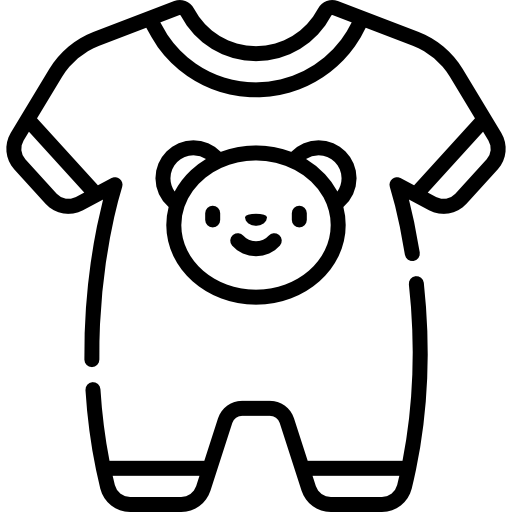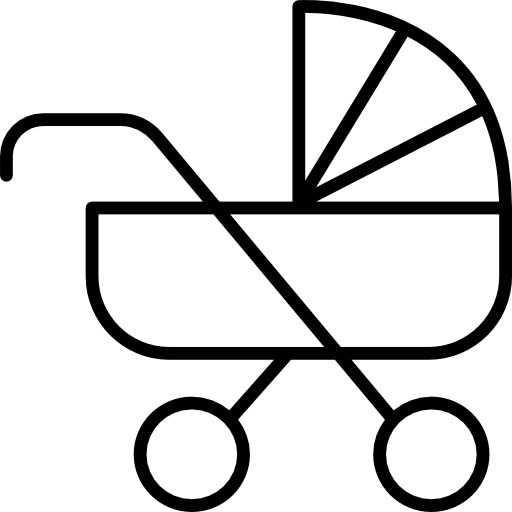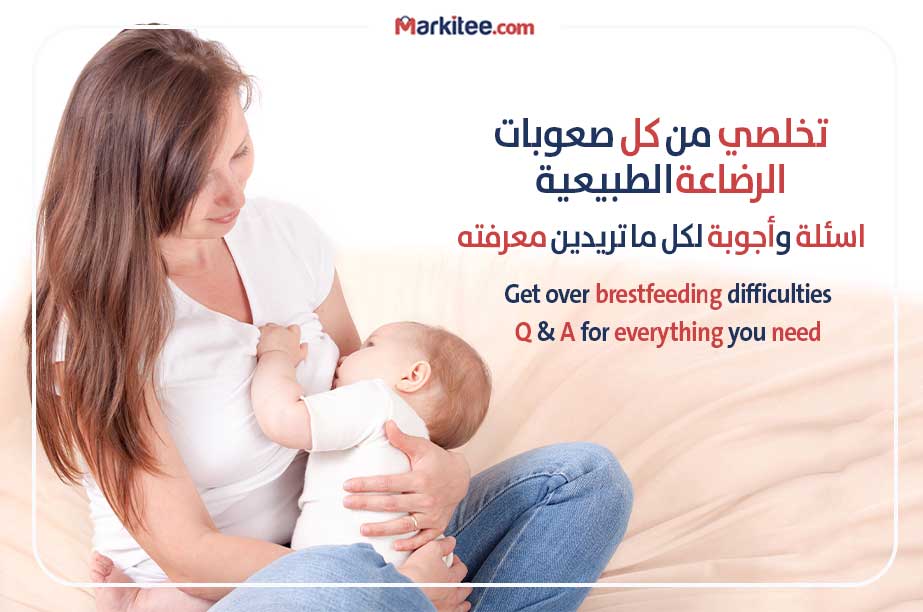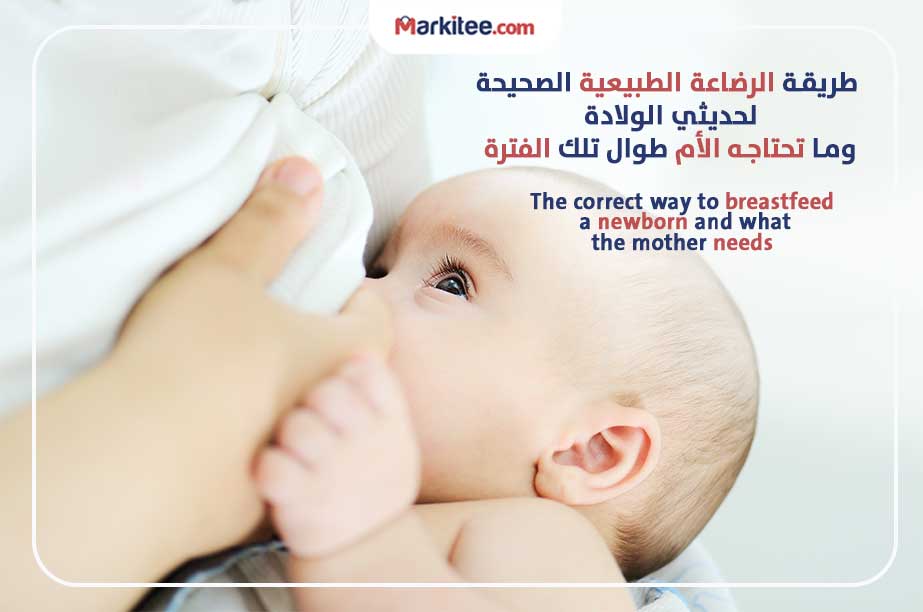Get over breastfeeding difficulties..Q & A for everything you need
Breastfeeding is one of the most effective ways to ensure the safety and health of your child. According to the World Health Organization, two out of three children do not rely primarily on breastfeeding during the first six months, despite the breast milk is an ideal food for infants, safe and clean, and contains Antibodies, help protect your child from common diseases.
Breast milk contains many vitamins and minerals, which help improve your baby's long-term health. Breast milk reduces the risk of Sudden infant death syndrome, diabetes and anaemia. It also provides your baby with all the energy and nutrients that an infant needs during the first half of his life. And it continues to deliver up to half of his needs during the second half, and even in the second half of the following year, breast milk gives the child a third of his needs, which confirms the importance of breast milk and relying on it mainly, especially in the first months.
Breastfeeding for a longer time builds your baby's brain
Everyone wishes to have intelligent children, and only a few are working to raise their children's abilities, and here it is worth noting a Brazilian study published by AFP, which confirmed that breastfeeding for long periods increases children's intelligence rates, and gives them the opportunity to achieve better financial revenues, after puberty. This is because breast milk contains saturated amino acids that significantly contribute to the development of the child's brain.
In the same study, the researchers observed the effects of breastfeeding for all members of the sample, who were over 30 years old, compared to others who were not breastfed. The researchers indicated that the result was better the longer the breastfeeding period.
Benefits of breastfeeding for mother and baby
The secret of breastfeeding lies in the colostrum that is formed in the mother’s breast during pregnancy (colostrum milk), because it consists of very important nutrients and antibodies, in addition to many benefits for the mother and the child.
Benefits of breastfeeding for the mother
-
Stimulating uterine contractions to return to its previous size, and reducing the heavy bleeding that may occur after childbirth.
-
Helping the mother lose weight and regain her pre-pregnancy agility.
-
Stimulating the production of prolactin, which helps the mother feel comfortable and relaxed.
-
Breastfeeding reduces the risk of breast or uterine cancer.
-
Breastfeeding mothers are less likely to suffer from depression, compared to mothers who give formula milk to their babies.
-
Breastfeeding may prevent or reduce the chances of menstruation, which is an added benefit to enjoying your precious time with your baby.
-
Save time and money, breastfeeding is free, while formula feeding costs you more effort in preparing the milk, heating it and sterilizing the bottles, in addition to the cost of formula milk that can burden you.
Benefits of breastfeeding a baby
-
Strengthen the child's immunity and ability to fight diseases.
-
Reducing colic, diarrhoea and constipation.
-
Breast milk promotes the ideal weight for the child in a healthy manner and prevents obesity, which contains the hormone leptin, which works to regulate appetite and store fats.
-
Breastfeeding protects your baby from middle ear and respiratory infections, colds and stomach infections, as well as allergies and diabetes.
Breastfeeding method
The mother should breastfeed her child whenever she wants and whenever he feels hungry, between 8 and 12 times every 24 hours, by following the following guidelines:
-
Wash your hands with lukewarm water and soap, and some Muslim women perform ablution before starting breastfeeding.
-
Allow your baby to feed as often as he wants, and try to switch between breasts during the same feeding session.
-
Hold your baby so that his head is straight - his head is under your chin - and you can support his neck and shoulders with one hand and with the other hand, you can support his thighs.
-
Make sure your baby is holding the nipple and areola around it correctly and tilting his head back slightly so that he can feed and swallow easily.
breastfeeding schedule
Every baby is different in the amount and frequency of feedings because it depends mainly on his needs, and here are some things that will help you organize your baby's feeding.
In the early days:
-
Your baby may want to feed every one to three hours. This helps your milk supply and trains your baby so that he can feed properly every time.
-
Your baby's tummy is still very small, so don't wait for him to nurse for too long.
-
You can hear your baby suckling and swallowing your milk.
In the first weeks and months:
-
Your baby at this stage will breastfeed from 8 to 12 times in 24 hours.
-
Your baby gets more breast milk each time.
-
The time between each feeding and the next one increases and breastfeeding may be required between two to four hours.
-
You may enjoy 4 to 5 hours of sleep longer.
-
Your baby appears satisfied after feeding and may go drowsy after his meal.
From 6 to 12 months:
-
At this stage, solid foods begin to be introduced, so if your baby seems uninterested in breastfeeding, feed him first before giving him meals.
-
Even after introducing some solid foods to your baby's diet, breast milk is still the primary source of nourishment and the nutrients he needs.
From 12 to 24 months:
In this age, there are different ages, some babies may want to sleep in the morning and some babies prefer to nurse before bed, both of you can decide.
Breastfeeding Q & A
What happens to the mother's body when breastfeeding?
Early production of breast milk begins from the sixteenth month during pregnancy, as the milk hormone stimulates milk production, so that milk begins to descend immediately after birth and the placenta exits directly, and here estrogen and progesterone levels decrease and prolactin levels rise.
Skin-to-skin contact between the mother and the baby stimulates milk production, making the baby willing to nurse.
When your baby sucks on the nipple, nerve impulses are sent to the brain, which leads to the release of more prolactin, and the hormone oxytocin is released, which stimulates a sense of calm and relaxation in the mother, and creates a strong sense of connection in the mother and her baby.
Does the crying of a nursing mother affect the infant?
One out of every 9 mothers suffers from postpartum depression. Unfortunately, the depressed mother is less able to give her child the tender touch that he needs, and in this case the mother’s ability to discover her child’s facial expressions, and thus give him what he wants, is reduced.
Some sources have reported that stress may affect breast milk in terms of the quantity of supply as well as the composition of the milk.
When you are stressed, the body responds by releasing cortisol and adrenaline, hormones that help your body deal with stressful situations.
This feeding cortisol reaches your baby through the intestinal tract, stimulating the signals of neurotransmitters in your baby's brain, affecting his emotion-regulating areas, which has learned us why some babies who cry easily or become irritable when they are put in unfamiliar situations.
Does breastfeeding increase or decrease weight?
Breastfeeding helps the mother to regain her strength quickly, and breastfeeding also burns more calories, as breastfeeding mothers achieve a burn rate of up to 500 calories, which is equivalent to cutting out a snack or performing 45-60 physical exercises. The effects of breastfeeding on your weight extend for years after birth.
However, many mothers report that they did not notice any effect, or that breastfeeding caused them to gain weight, and this is because breastfeeding may make the mother feel hungry, so they may eat more and move less due to breastfeeding, and irregular sleep periods are among the factors known to affect Increased hunger and appetite.
When does your period come while breastfeeding?
If you're breastfeeding, your period may not return to normal for several months. This is because the hormone prolactin, which causes milk production, prevents ovulation and menstruation.
There are also many factors that determine when your period will return while breastfeeding, such as how often you feed and how long your baby spends feeding, as well as the way your baby responds to hormonal changes.
When does the taste of a pregnant mother's milk change?
The taste of a pregnant mother’s milk changes, as colostrum begins after the sixteenth month, which turns its taste from sweet to salty, and its texture becomes more cohesive. Some children may refuse to breastfeed, while others do not mind that.
How many hours does the baby sleep without feeding?
After 6 months of your baby’s birth, the number of sleep hours is expected to reach 6 hours continuously without feeding, and before that age, it is never preferable to leave the baby without feeding for 5 hours continuously, and if your baby sleeps for that period and does not wake up, you can do the task to breastfeed him.
What is the thing that generates breast milk?
The more times you breastfeed, the more milk you will secrete, and using a breast pump between feedings is one of the effective ways, and you should consider breastfeeding from both breasts, you can try some herbs that increase milk production, and take some nutritional supplements that can help you in this case.
How many times a day should a mother breastfeed her baby?
In the first week, your baby may want to feed a lot. Some babies feed every hour for the first few days. After that, your baby will start asking for fewer feedings but for a longer time. However, your baby should not nurse less than 8 times which can reach up to 12 times.
And if you're a first-time mom, make sure you understand the early signs of your baby's hunger, such as sucking fingers, feeling anxious or making certain sounds, as it can be difficult to feed your baby while he's still crying.
What is the reason for not breastfeeding the child?
There are many reasons that lead your child to refrain from breastfeeding after he has been breastfeeding for months on end, and this may mean that your child is not feeling well, and it does not necessarily mean that he is ready to wean, sometimes teething pain is one of those reasons, or He had cold and nasal congestion.
Sometimes the cause is the mum’s food such as a specific soap or perfume, or a change in the taste of milk, due to pregnancy or eating certain foods and medications, and sometimes the menstrual cycle is the cause, and the cause may be a decrease in your milk production rates and the use of formula or pacifier is one of the reasons why The child refuses to breastfeed.
What is the name of the hormone that is secreted during lactation?
The pituitary gland secretes the hormone prolactin, and this hormone rises to its maximum levels when the baby is breastfed. The hormone oxytocin, which is responsible for compressing milk in small tubes called milk ducts, is secreted to release milk from the nipple, and the hormones prolactin and oxytocin help the mother form an emotional bond with her child.
When should a child be weaned in Islam?
The appropriate time for weaning the child is the time when the mother and the child feel that they are both ready to wean, whether it is a month after the birth of the child or after a year. Breastfeeding is completed, but weaning the child before the lapse of two years is permissible in any month.
How long is breastfeeding according to the age of the child .. How many minutes?
You should put your newborn to the breast at least every 2-3 hours, and feed him for 10 to 15 minutes on each side. A 20-30 minute feeding helps your baby to ensure that your baby gets enough milk.
We recommend learn more about the correct way to breastfeed newborn baby, to learn more about what your baby need.
How do I know that my child is fully of breastfeeding?
If your baby is feeding long enough at each feeding, he should wet 6 diapers a day After the age of the fifth day, he is gaining weight well, your breasts feel softer and less full after each feeding, and your baby appears satisfied after feeding and sleeps well between feedings.
What makes breast milk creamy?
Tests have proven that the frequency of feeding increases the fat content of breast milk, and studies have shown that when your child gets the maximum nutrition through the breast, this increases the production of fat in it, which means that the longer the breastfeeding period, the more it works Increased level of fat in the breast.
How does breastfeeding help a mother communicate love to her child?
Breastfeeding helps create a natural relationship between the mother and her child, which gives the mother many beneficial psychological effects such as increasing feelings of calm and reducing stress. Natural is one of the mother's ways of expressing love for her child.
Can a woman breastfeed without being pregnant?
Induced breastfeeding can be used to generate natural milk from the breast, by obtaining intense doses of the hormones estrogen and progesterone, to simulate what happens during pregnancy in the body, but hormonal therapy may take several months until we reach the desired result.
Two months before the expected time of breastfeeding, the hormonal treatment is stopped and the electric pump is started, in order to stimulate the production of the hormone prolactin, after which you can start breastfeeding while continuing to use the pump to generate more milk.
Is frequent breastfeeding harmful to the baby?
Many new mothers are afraid of overfeeding their babies. Don't worry if your baby is feeding a lot. It's perfectly normal for newborns, and you don't have to decide when to feed your baby.
We hope that we have provided you with everything you need to know about breastfeeding. Because we are always working to support you, through markitee.com, the best shopping website in Egypt for all mum & baby needs, we offer a wonderful assortment of the tools you need for you and your child through the Nursing & Feeding section, and now enjoy a unique shopping experience at the lowest cost.














